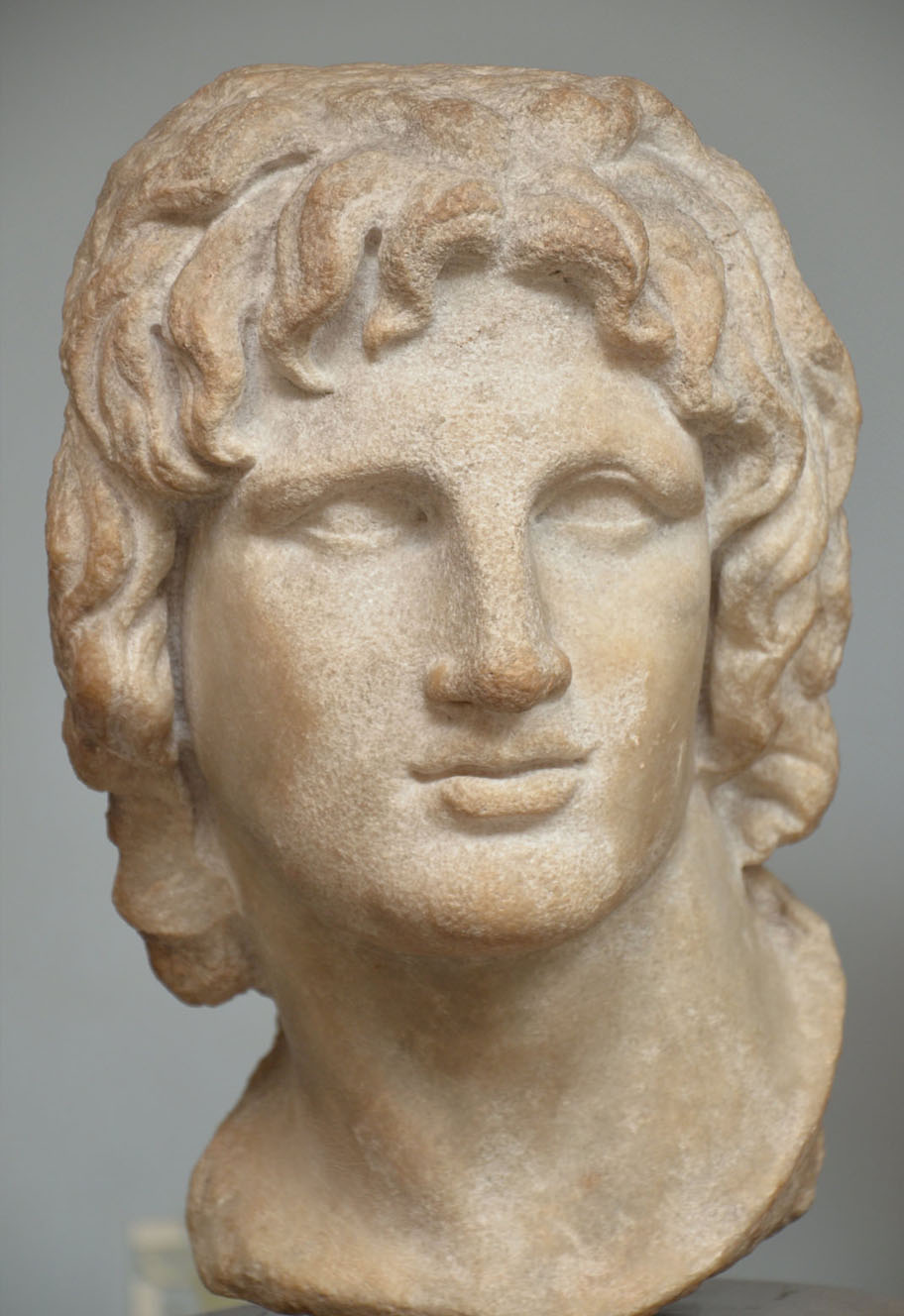Alexander the Great
Born:
356 BCE
Died:
323 BCE
Alexander the Great was one of the most successful military commanders in history, and he played a crucial role in spreading Greek culture throughout the ancient world. Here are key aspects of Alexander's life and his impact on Ancient Greece and beyond:
Early Life and Education: Alexander was born in Pella, the ancient capital of Macedonia, in 356 BCE. He was the son of King Philip II of Macedonia and Queen Olympias. His education was overseen by the philosopher Aristotle, who influenced his thinking and instilled a love for literature, science, and the arts.
Military Campaigns: After the assassination of his father, Philip II, in 336 BCE, Alexander ascended to the throne of Macedonia at the age of 20. He embarked on an ambitious military campaign known as the Macedonian Conquest, with the goal of expanding the Greek Empire and conquering the Persian Empire.
Battle of Issus (333 BCE) and Conquest of Persia: In 333 BCE, Alexander decisively defeated Persian King Darius III at the Battle of Issus, marking a significant victory in his conquest of the Persian Empire. He continued his advance into Persia, capturing key cities such as Babylon and Susa.
Siege of Tyre (332 BCE) and Egypt: Alexander faced a challenging siege at the island city of Tyre but eventually succeeded in capturing it in 332 BCE. He then proceeded to conquer Egypt, where he founded the city of Alexandria and was welcomed as a liberator by the Egyptians.
The Battle of Gaugamela (331 BCE): In 331 BCE, Alexander decisively defeated Darius III at the Battle of Gaugamela, leading to the fall of the Achaemenid Persian Empire. Alexander proclaimed himself the King of Persia and adopted Persian customs, fostering a policy of cultural integration known as "Hellenization."
Conquests in Central Asia and India: Alexander continued his eastward conquests, reaching as far as Central Asia and the northern regions of the Indian subcontinent. His troops, however, grew weary, and in 326 BCE, they mutinied at the Hyphasis River (modern Beas River), leading to Alexander's decision to turn back.
Death and Legacy: Alexander died in Babylon in 323 BCE at the age of 32 under mysterious circumstances, possibly due to illness, poisoning, or injury sustained in battle. Following his death, his vast empire was divided among his generals, known as the Diadochi, leading to the Hellenistic period.
Cultural Impact - Hellenistic Civilization: Alexander's conquests facilitated the spread of Greek culture, language, and ideas throughout the known world, creating a Hellenistic civilisation that influenced art, philosophy, and politics for centuries. The city of Alexandria, founded by Alexander in Egypt, became a major centre of learning and cultural exchange.
Alexander the Great's military prowess, strategic brilliance, and the cultural diffusion resulting from his conquests left an enduring mark on the ancient world. The Hellenistic era that followed was characterised by a blending of Greek and local cultures, shaping the course of history in the centuries to come.

Quick Facts
- Alexander the Great's conquests created a Hellenistic civilization, blending Greek and local cultures.
- His military campaign, known as the Macedonian Conquest, aimed to expand the Greek Empire and conquer the Persian Empire.
- Alexander was educated by the philosopher Aristotle, fostering a love for literature, science, and the arts.
- Following his death, his generals, the Diadochi, divided his vast empire, leading to the Hellenistic period.
- The city of Alexandria, founded by Alexander in Egypt, became a major centre of learning and cultural exchange.
Further Reading
Art &
Architecture
Ancient Greek art and architecture, with its harmonious proportions and timeless elegance, continue to inspire awe and admiration millennia later.
Discover
Greek Mythology & Mythical Characters
Greek mythology, a rich tapestry of gods, heroes, and mythical creatures, captivates the imagination with its tales of love, betrayal, and epic adventures that delve into the depths of the human psyche.
Discover
Ancient Greek History
Ancient Greek history, marked by remarkable achievements in democracy, philosophy, and warfare, shaped the foundation of Western civilization, leaving an indelible legacy of innovation and cultural influence that continues to resonate to this day.
Discover
Ancient Greek Olympics
The ancient Greek Olympics, held in Olympia every four years, celebrated athleticism, unity, and cultural pride, serving as a testament to the enduring spirit of competition and excellence that transcends time and borders.
Discover
Ancient Greek Wars
Ancient Greek wars, such as the Persian Wars and the Peloponnesian War, were pivotal conflicts that shaped the course of history, highlighting the struggle for power, independence, and the clash of civilizations in the ancient Mediterranean world.
Discover
Ancient Greek Culture and Society
Ancient Greek culture and society, characterized by its emphasis on art, philosophy, and civic engagement, fostered a vibrant intellectual and social landscape where innovation flourished, democracy thrived, and the pursuit of knowledge and excellence was celebrated as fundamental values of civilized life.
Discover